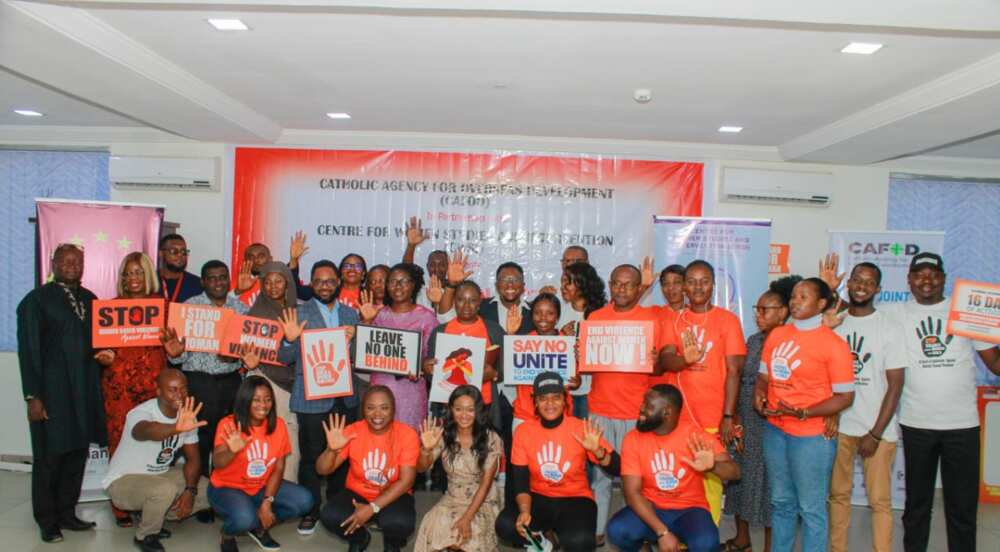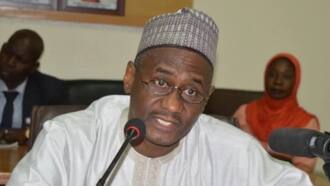How CAFOD, CWSI is threading down Nigerian laws to communities to end gender-based violence
- There is a growing call for an end to gender-based violence in communities across the federation
- Civil society groups like CAFOD and CWSI have taken the mantle of responsibility to combat such societal ill as gender-based violence
- In combating this problem, both civil society groups have resorted to sensitising women and men in remote suburbs
FCT, Abuja - The Catholic Agency for Overseas Development (CAFOD), in partnership with the Centre for Women Studies and Intervention (CWSI), says it has embarked on several action campaigns to end gender-based violence in Nigeria.
This development was made known on Monday, December 12 in Abuja by the country director of CAFOD, Mr Kelechi Emeh at the commemoration of the 16 days of activism against gender-based violence.

Source: Facebook
Emeh said the agency has carried out numerous campaigns in some parts of the country using the Nigeria legal system/laws as reference points by incorporating and fusing them with the customary laws of the targeted communities in a bid to end gender-based violence and other ills of the targeted communities.
He stated that there are many laws in the constitution that have been left untapped or implemented over the years.
Emeh said:
"We have enough laws in Nigeria, we have good laws in Nigeria. However, the challenge we have is the implementation of those policies and laws. And when laws are made and they are kept on the shelves after they are appended into law, they are not publicized, and nor are these communities made aware of the provisions of the law.
"Then the practices continue and that is where the government has got a hand, a complementing hand in the NGOs that the Civil Society are now complementing the work that the government has done by promulgating the law."
CWSI gives insight on women's rights in remote communities
Similarly, the program manager of CWSI, Pascal Ignatius Idogbe, said its gender-based campaign focuses on the hinterlands of some states in Nigeria where there are violations of human rights and as well as the prevalence of gender-based violence.
He enumerated cases like widowhood practices, female genit*l mutilation, and a host of other ill practices that women suffer.
When asked about the methodology adopted in getting data, and reaching out to victims in the hinterlands, Idogbe said:
"What we do in our office, we tag it institutional strengthening. Since we are headquartered in Abuja, we really necessarily have to partner with people who are residents in the local areas."
He stated that CWSI has organs that they work with deep inside the hinterlands to carry out effective operations and action plans to help proffer solutions to some of the ill practices against women and girls in the targeted communities.
He said:
"Our organs are the women group themselves. For instance, in Cross Rivers State, we established the Cross River women empowerment network, and that network upon getting the knowledge, upon understanding their rights have now become like vanguards in fighting for the rights of other women."
2023: Women, girls’ inclusion is Nigeria’s chance at development and accountability, says CSOs
In another development, agitation and advocacy for the participation of women and girls between the ages of 18 to 35 years in Nigeria's electoral practice have intensified.
In the build-up to the 2023 general elections, women have been urged to participate either on the ballot or by the ballot.
However, traditional and religious leaders have been urged to support the campaign in sensitising female folks in their immediate environment.
Source: Legit.ng



